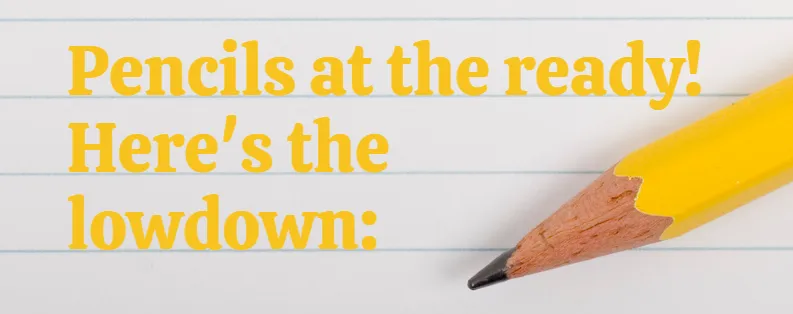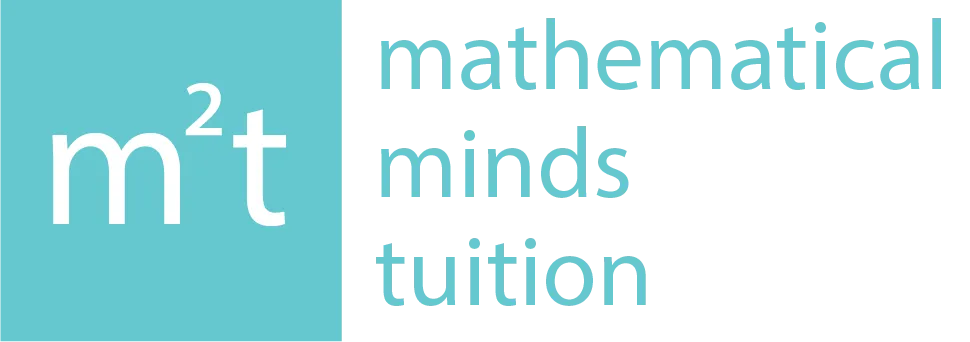BLOG
Read what we are up to, our top tips for maths students and how you can support your child with
their maths at school

The lowdown on GCSE – what’s involved for Year 11s?
“The way to get started is to quit talking and begin doing” - Walt Disney
I thought today would be a good opportunity to talk about what exactly is involved in GCSE maths – mainly for the parents of soon-to-be Year 11s, but also for younger students who may be getting to Year 11 in the next couple of years. Most likely they will have already started working towards it at school!
One of the best ways for both parents and students to prepare for maths GCSE is to know exactly what it entails – seeing the big picture, in my opinion, is one of the best things a student can do. Instead of going from maths class to maths class, assuming that at some point soon, you will have been taught everything you need to know, it can be very helpful to know exactly how much (and which topics) you need to learn. Plus, it helps to know how many exams you will have, what’s the difference between the exams, and what marks you need to be aiming at to get a specific grade (based on past grade boundaries).
So here is the lowdown…

Exams
For AQA & Edexcel, Foundation and Higher:
There are 3 maths papers
Each paper is 90 minutes long
There are 80 marks in total in each paper
Paper 1 is non-calculator, Papers 2 and 3 are calculator papers
For OCR, Foundation and Higher:
There are 3 maths papers
Each paper is 90 minutes long
There are 100 marks in total in each paper
Paper 2 is non-calculator, Papers 1 and 3 are calculator papers
For Edexcel iGCSE:
There are 2 maths papers
Each paper is 2 hours long
There are 100 marks in total in each paper
Both papers are calculator papers
Topic weightings
Split into 5 topic areas, here are the weightings for each, across all papers for AQA, Edexcel and OCR:

Topic weighting for Edexcel iGCSE is slightly different:

Grades and grade boundaries
Students need a minimum of a Grade 4 to not be required to continue their maths into Further Education, however they may require a higher grade to be able to study their desired Further Education courses, as specified by their chosen college or sixth form.
Knowing exactly how many marks they need in total to get a Grade 4 (or their desired grade) is impossible as the grade boundaries change every year. If you haven’t already, download our Ultimate GCSE Maths Success Guide for Students and Parents as past grade boundaries for the last 4 years are set out on page 6.
[Generally, for Foundation Students, we say they need to aim for 50 marks out of 80 on each paper to be in the ‘safe zone’ of getting a Grade 4 – but it’s ALWAYS a guessing game. As an example, in June 2019, Edexcel put its Foundation Grade 4 boundary a whole 13 marks higher than the previous year and was significantly higher than AQA that year too. So our motto is – aim high, and then higher!!]
What to revise
To create a revision plan, it’s a great exercise to use the contents page of a revision guide so you know how many topics you need to factor in (my personal favourite are the CGP guides). With our one-to-one tutees, we work off a topic list which is roughly ordered by grade so we can visualise whereabouts we are with our lesson content and also what needs to be done to achieve higher grades – and we always share this with our tutees! Our Ultimate GCSE Maths Success Guide for Students and Parents also has our topic list on pages 13 and 14 if you’d like to nab it!
That’s it for today from me! I hope this has been really helpful – perhaps one to save and revisit again in the future!
If you know anyone who would benefit from this info, please feel free to forward it on or point them in the direction of our downloadable Ultimate GCSE Maths Success Guide here: www.m2tonline.co.uk/year11.
FREE DOWNLOAD
EVERYTHING you need to know about GCSE maths and how to ACE it!
There's no escaping it - Year 11 is tough! That's why we've compiled our top tips for success in GCSE maths into this ULTIMATE guide, for students AND parents!

© Copyright 2023 Mathematical Minds Tuition Limited

